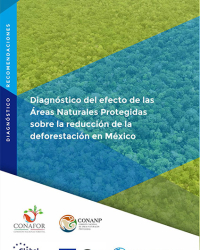Co-innovation for Development
1065 Downloads
 The technical document “Co-innovation for Development” is part of the series of publications developed on the basis of webinars and round table discussions organized by the EUROCLIMA+ programme in the Resilient Food Production (RFP) sector. It describes the concept of co-innovation, defined as the shared creation of new ideas, technologies and ways of doing things, exchanging perspectives and fostering knowledge appropriation and social learning. The publication also describes case studies and lessons learned that were shared by key actors in the projects co-financed by the EUROCLIMA+ programme in Uruguay, Argentina, El Salvador, Panama, Honduras, Guatemala and Nicaragua.
The technical document “Co-innovation for Development” is part of the series of publications developed on the basis of webinars and round table discussions organized by the EUROCLIMA+ programme in the Resilient Food Production (RFP) sector. It describes the concept of co-innovation, defined as the shared creation of new ideas, technologies and ways of doing things, exchanging perspectives and fostering knowledge appropriation and social learning. The publication also describes case studies and lessons learned that were shared by key actors in the projects co-financed by the EUROCLIMA+ programme in Uruguay, Argentina, El Salvador, Panama, Honduras, Guatemala and Nicaragua.
| Category: | Serie Documentos técnicos |
| File Size: | 4.93 MB |
| Hits: | 7629 Hits |
| Download: | 1065 times |
| Título: | Co-innovation for Development |
| Autor: | Andrea Schloenvoigt |
| Año: | 2022 |
| Catálogo: | MN-BK-22-006-EN-N |
| Formato: |






